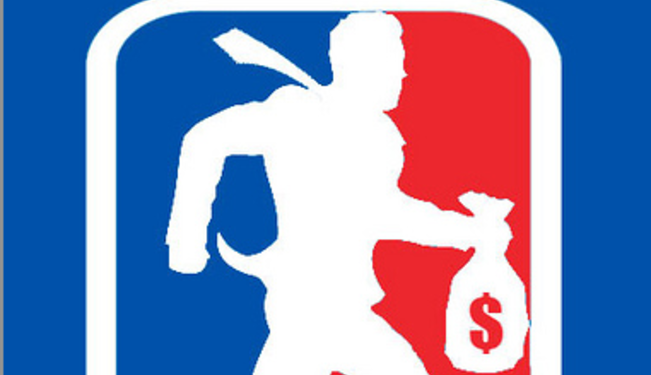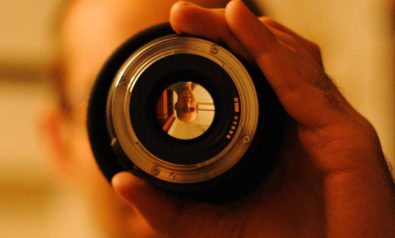An introspection on the mass emigration of graduates to finance jobs in New York, and what this says about the liberal arts and American society. A few days ago I returned from a weekend visiting my former roommates from Penn (University of Pennsylvania)-- which was easy enough as they have all moved to New York. By Friday night we were back to recreating the “good old days” of less than a year ago. It’s no small secret that virtually every Penn graduate packs up and moves to New York upon receiving his or her diploma. However, it is very different to experience it first hand — particularly when it’s a phenomenon not unique to just Penn. Friends and underclassmen visiting from Yale, Harvard, Brown, and Cornell continually expressed their same amazement with how New York City has been the one-stop shop to reconnect with former classmates. And while this weekend it felt like I ran into everyone I ever knew from Penn (from brunch in midtown, shopping in Soho, to waiting in line for a packed club that would later be the site of a particularly rousing Whitney tribute), in past weekends I’ve also found myself at a rooftop party hosted by a deluge of former Yalies, sharing a table at Hudson Terrace with the graduated Harvard soccer team, and once attending an all you can eat “pig roast” (truly) with a friend’s former fraternity brothers from Cornell. The college bubble hasn’t popped — Penn, and the rest of the Ivy League apparently, has simply relocated to New York. My genuine awe with this has led me to consider an ominously titled article that I recently read in the Washington Post: “Wall Street steps in when Ivy League fails.” In this article, author Ezra Klein argues, “Explanations for why so many Ivy League graduates rush into finance — along with law and consulting — tend to fall into two camps. On one hand, the economic determinists say this is no mystery. Finance, law and consulting pay high salaries — and these are much higher than most other options on the table. It would be rather strange, given the financial incentives, if these graduates would not pursue such high-paying fields. On the other hand, the social determinists say these students are simply following their tribe. Finance, law and consulting, employ smart, high-status individuals in desirable urban locales. Because Ivy League graduates are smart, high-status individuals who generally want to work and live among people like themselves, it makes sense that they take the road more traveled. These two camps are not mutually exclusive. You can follow the money while you follow your friends. But I am young enough to know these graduates, or at least a lot of their recent predecessors. In conversations with them, I have come to favor another explanation: their educations are failing them.” I am as eager as anyone for an explanation as to why every single one of my friends, even those hailing from other Ivy League institutions, now lives in New York. My first guess wouldn’t be that it’s because their education has failed them. I will grant that the mass migration of Ivy Leaguers to New York directly correlates with the growing trend of taking a job in finance (my friends included): However, I don’t quite get the leap in reasoning that following that path is the result of some systemic failure in education. Klein’s argument: “Wall Street is promising to give graduates the skills their university education didn’t. It is providing a practical graduate school that pays students handsomely to attend. Sometimes, the enrollees end up liking their job in finance, or liking the lifestyle that it affords them, so they stick around. Sometimes, they don’t. So it seems universities have been looking at the problem backward. The issue is not that so many of their well-educated students want to go to Wall Street rather than make another sort of contribution. It is that so many of their students end up feeling so poorly prepared that they go to Wall Street because they are not sure what other contribution they can make. My hunch is that we have underemphasized the need to learn skills, rather than simply learn, while in college. The fact that Teach for America — which pays almost nothing and can place its hires far from cosmopolitan hot spots — is one of the few recruiting systems competitive with Wall Street suggests that graduates are open to paths that are not remotely as remunerative and are not based in New York or San Francisco” Well, he has a point. As an English and Philosophy student, who even went so far as to earn a Masters degree in Philosophy, I did experience pangs of confusion with regard to what my skills would ultimately translate to career wise, especially after I put myself through the ringer of completing both a double major and dual-degree program. But I did it knowingly. When I’m asked the perfunctory question of “What do you/what did you study?” along with the answer, my running joke has probably been “I know, real useful right?” since sophomore year. Still, even if I joke about being unemployable — and am sometimes genuinely unsure of the next step — it is not because I believe my liberal arts education has actually left me with no skills to offer future employers. Any confusion I have had has been more along the lines of “what to I want to spend the rest of my life doing?” rather than “why hasn’t my education prepared me for a specific career? Why didn’t they spell it out more clearly for me?” Honestly, I did not know that many sophomores in college who could declare a major in “vocational field X” and not feel slightly confused as to whether that is truly what they wanted to do with the rest of their lives -- but most can’t, nor should they be expected to. Perhaps it is the Philosophy student in me but I don’t find the perpetual confusion about what to do next all too terrifying. Maybe it is because I watched so many graduating classes ahead of me freak out, only to figure it out, or because I was raised by parents who told me early on that such confusion was natural. Either way, I graduated Penn with my Philosophy and English degrees in tow, feeling accomplished and on top of the world. I left in the summer to work in France, and returned in the fall to begin doing Marketing with Fair Observer and pursue the “domestic” job application process in earnest. I have maintained the same optimism and open-mindedness throughout this process and have found employers from all across a spectrum of fields, including finance and consulting, interested in hiring me. It is indeed a myth that a liberal arts education, especially from a top university, renders you unemployable. Moreover, and to address Klein, it is also a myth that a liberal arts education renders you incapable of developing a perspective about how you would someday want to be employed. Klein actually says, “My hunch is that we have underemphasized the need to learn skills, rather than simply learn, while in college.” The question is: what hypothetical “skills” could educators spend their time teaching us that would solve the old dilemma of college graduates being confused about what to do next with their lives? Klein’s argument begs a logical answer to this question and I simply don’t think there is one. When I consider then, why all of my friends now live in New York, many working in finance, but having received degrees in every combination of liberal arts or Wharton, and doing both finance jobs and non-finance jobs, I think the answer resides more simply in the fact that New York is one of the greatest cities on earth, and why not continue your “education” there, as Klein puts it, in a well-paying, respect-garnering job, figuring out what you want to do next with your life? We cannot jump to the conclusion that continuing to search for the right career path and taking a resume-padding detour after graduation means your education has somehow already failed you. In fact, not one of my friends currently living in New York has become a lifeless soulless automaton reduced to being a mere cog of Wall Street urban elitism, — but if the argument is that they should be wanting to spend their time “doing more” I am again left baffled by the reasoning that this is some massive failure of the liberal arts. Klein argues it is because this kind of education leaves us somehow unsure of how to make a greater contribution, and so we don’t — but I would contend that such uncertainty is inherently unavoidable and no institution, least of all the liberal arts, can be blamed for causing it. Ultimately, while finance is not the path I chose or plan to choose despite the apparent uselessness of my liberal arts degrees — which I suppose should have left me like a deer in the headlights with no other recourse but to work as an investment banker or die trying — I don’t think my friends who are pursuing such a path were sucked into it because of some educational failure. I believe this because the confusion that sets in by graduation, and the obvious upside of a job in New York or finance, would be there regardless. Klein is basically upset that not every 22 year old graduating from an Ivy League school pops out primed and ready to change the world. He chooses to blame the liberal arts because he can argue that graduates’ undeniable natural talents are being wasted, which means they are not being properly prepared by their schools. But prepared to do what? To make a decision about the rest of their lives? It is a baseless and unrealistic criticism of the liberal arts; and more importantly, gives the recent generation of Ivy League graduates far too little credit to determine what is good, if not “right,” for them. Let me begin by saying that Klein and I would both agree that the upsurge of graduates taking jobs in finance, not conducive to their being able to make a full use of their talents, is a shame. However, I will maintain that it is nevertheless a “Why not?” or even a good path for my friends to take — solely because of the unimaginable respect and clout that surrounds their obtainment of such positions. They are not only getting an early monetary edge, but are also setting themselves up for success, respect, and opportunities in the future. To this end Klein sees Wall Street as the equivalent of a mass Ivy League grad school — a step that could be avoided if only the right hypothetical material was being covered in undergrad. The truth is, my friends are not going into finance to “learn” something greater than their liberal arts education could have taught them. In fact, despite the paycheck, they do it because it is a natural precursor to being able to have any kind of respect in today’s society. If and when you do want to contribute more, it is the jobs in the financial industry that are universally respected and open the most doors to being able to do so. I would say then that instead of criticizing education for the rising popularity of finance jobs, we should turn a more discerning eye on what kind of systemic failure there is with American society, one that contributes to these jobs being so widely popular. Why is it that financial jobs are so respected? Why are they able to maintain this edge, coveted by the most up and coming recent graduates? Here’s why: as the 2012 election unfolds, we are told to respect Mitt Romney for his success at Bain Capital, i.e. we are asked to consider how we can learn from him. At least Romney has had some kind of a history in politics. In Donald Trump’s case, generating a massive fortune was proof enough that he deserved to be considered at the pinnacle of American society, speculated to be the next President of the United States. Equally apparent, this kind of rarified consideration and media coverage is not being bestowed upon our award-winning scientists or humanitarians. Witnessing the (cult)ure of money in American society, Ivy Leaguers, even when confused, are not stupid. There is a clear and proven path to take towards respect and success in this country, so they take it. Truly there is something to respect in entrepreneurship, and everyone wants financial stability and success. Yet, these rational values and desires have transformed into the entirely irrational conclusion that the moneymakers are the most intelligent and valuable members of our society, when in truth they contribute very little. It is the atmosphere of a capitalistic nation and financial meritocracy on crack that needs to change…not the liberal arts.
The views expressed in this article are the author's own and do not necessarily reflect Fair Observer’s editorial policy.
Support Fair Observer
We rely on your support for our independence, diversity and quality.
For more than 10 years, Fair Observer has been free, fair and independent. No billionaire owns us, no advertisers control us. We are a reader-supported nonprofit. Unlike many other publications, we keep our content free for readers regardless of where they live or whether they can afford to pay. We have no paywalls and no ads.
In the post-truth era of fake news, echo chambers and filter bubbles, we publish a plurality of perspectives from around the world. Anyone can publish with us, but everyone goes through a rigorous editorial process. So, you get fact-checked, well-reasoned content instead of noise.
We publish 2,500+ voices from 90+ countries. We also conduct education and training programs
on subjects ranging from digital media and journalism to writing and critical thinking. This
doesn’t come cheap. Servers, editors, trainers and web developers cost
money.
Please consider supporting us on a regular basis as a recurring donor or a
sustaining member.
Will you support FO’s journalism?
We rely on your support for our independence, diversity and quality.










Comment